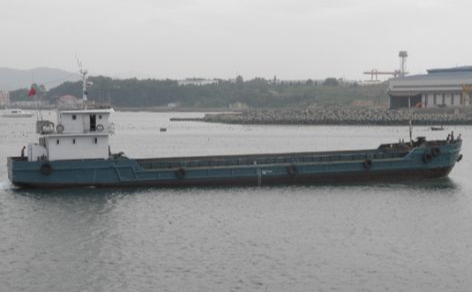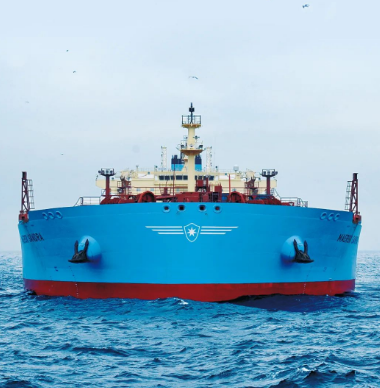"Smart ship Code" six functional module requirements
In recent years, due to the rise of the concept of intelligent ships and the increasing development of intelligent ship technology, ship intelligence has become the general trend of global shipping. In order to reduce the difficulty of ship control and management, reduce human error, improve the safety of equipment and ship operation, optimize ship navigation, control fuel consumption, reduce costs, and improve revenue through ship intelligence, the current research on intelligent ships has been carried out on a global scale.
Taking into account the development direction and development trend of future ship intelligence, in order to lead the development of the industry, but also for the ship navigation safer, more environmentally friendly, more economical and more reliable, China Classification Society based on the development of computer technology, communication navigation technology, advanced sensor technology, advanced control technology and other international intelligent ship technology research results in recent years, With full reference to the application experience and development status of smart ships at home and abroad, the CCS "Smart Ship Code" has been prepared and officially entered into force on March 1, 2016.
The CCS Smart Ship specification defines smart ships as follows: Intelligent ship refers to the use of sensors, communications, Internet of things, Internet and other technical means, automatically perceive and obtain the ship itself, Marine environment, logistics, port and other aspects of information and data, and based on computer technology, automatic control technology and big data processing and analysis technology, in ship navigation, management, maintenance, cargo transportation and other aspects of intelligent operation of the ship. The smart ship is divided into six functional modules: intelligent navigation, intelligent hull, intelligent engine room, intelligent energy efficiency management, intelligent cargo management and intelligent integration platform. When the ship's various functions meet the requirements of the CCS smart Ship specification, the smart ship can be awarded an additional mark:

The letters in parentheses of i-Ship (Nx, Hx, Mx, Ex, Cx, Ix) are the functional marks of smart ships, which correspond to the functional modules of smart ships as follows:
N-- Intelligent navigation function mark;
H-- intelligent hull function mark;
M-- Intelligent cabin function mark;
E-- Intelligent energy efficiency management function mark;
C-- Intelligent cargo management function mark;
I-- Intelligent integration platform function mark;
x-- Optional feature supplement flag.
When a ship has an intelligent function, the relevant intelligent function mark can be awarded separately.
The requirements of the smart ship specification for various smart ship functional modules are as follows:
1. Intelligent navigation
The standard requires that intelligent navigation should have the following basic functions:
■ Analyze and process meteorological, economic and logistics information;
■ Design and optimize the ship route and speed based on the analysis results. In addition to the basic functions, intelligent navigation can also have the function of autonomous navigation in open waters, or have the advanced autonomous navigation capability of automatically docking and leaving the dock, in narrow waterways, and in complex environments, as a supplementary intelligent function of intelligent navigation.
2. Intelligent hull
The specification requires that the intelligent hull should have the following basic functions:
■ Establish and maintain hull database;
■ Assist decision-making on hull safety and structural maintenance throughout the hull life cycle based on hull database data. In addition to the basic functions, the intelligent hull can also provide auxiliary decision-making of ship maneuvering as a supplementary intelligent function of the intelligent hull according to the automatic collection and monitoring of hull-related data.
3. Intelligent cabin
The specification requires that the intelligent cabin should have the following basic functions:
■ Monitor the running status of main engine, auxiliary engine and shafting in the engine room;
■ Analyze and evaluate the operating status and health status of mechanical equipment according to the data collected by the condition monitoring system;
■ Based on the results of analysis and evaluation, make corrective suggestions and provide auxiliary decision making suggestions for ship operation.
In addition to the basic functions, according to the results of the analysis and evaluation of the operating status and health status of the mechanical equipment, the corresponding maintenance plan can be developed as a supplementary function of the intelligent cabin.

4. Intelligent energy efficiency
The specification requires the intelligent energy effect to have the following basic functions:
■ Online monitoring and automatic data collection of the ship's sailing status and energy consumption;
■ Evaluate the ship's energy efficiency, sailing and loading status, etc., based on the collected data;
- ABB
- General Electric
- EMERSON
- Honeywell
- HIMA
- ALSTOM
- Rolls-Royce
- MOTOROLA
- Rockwell
- Siemens
- Woodward
- YOKOGAWA
- FOXBORO
- KOLLMORGEN
- MOOG
- KB
- YAMAHA
- BENDER
- TEKTRONIX
- Westinghouse
- AMAT
- AB
- XYCOM
- Yaskawa
- B&R
- Schneider
- Kongsberg
- NI
- WATLOW
- ProSoft
- SEW
- ADVANCED
- Reliance
- TRICONEX
- METSO
- MAN
- Advantest
- STUDER
- KONGSBERG
- DANAHER MOTION
- Bently
- Galil
- EATON
- MOLEX
- DEIF
- B&W
- ZYGO
- Aerotech
- DANFOSS
- Beijer
- Moxa
- Rexroth
- Johnson
- WAGO
- TOSHIBA
- BMCM
- SMC
- HITACHI
- HIRSCHMANN
- Application field
- XP POWER
- CTI
- TRICON
- STOBER
- Thinklogical
- Horner Automation
- Meggitt
- Fanuc
- Baldor
- SHINKAWA
- Other Brands




































































































































